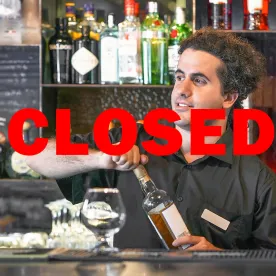With the widespread closure of businesses and looming unemployment of thousands, state and federal governments have been scrambling to address this result of the coronavirus pandemic.
New York’s Coronavirus Response to Unemployment
In New York, the Department of Labor has waived the seven-day waiting period usually required before an employee can begin to collect unemployment benefits. On Monday, however, with the closing of all bars, restaurants, and other similar businesses, the on-line site used to apply for unemployment benefits in New York was so overwhelmed that it crashed several times and was not serviceable. Governor Cuomo has announced that he will sign into law paid sick leave with emergency provisions for leave required by coronavirus quarantine.
Pennsylvania’s Coronavirus Response to Unemployment
Pennsylvania’s Department of Labor has also waived the seven-day waiting period for benefits and has published a website to assist those employees impacted by the coronavirus. Unemployment benefits are potentially available if an employer temporarily closes or goes out of business because of COVID-19, if an employer reduces working hours because of COVID-19, if an employee been told not to work because their employer feels their might get or spread COVID-19, or if an employee has been told to quarantine or self-isolate, or live/work in a county under government-recommended mitigation efforts.
New Jersey’s Coronavirus Response to Unemployment
New Jersey residents are provided with some of the most comprehensive employee benefits in the nation. New Jersey requires earned sick leave, temporary disability benefits, paid family leave insurance, and unemployment benefits. The New Jersey Department of Labor and Workforce Development has published a webpage that details how these benefits might be available is scenarios involving the coronavirus. In addition, the New Jersey Assembly this week passed several bills aimed to assist those impacted by COVID-19. One bill implements a temporary unemployment program for employees who are out of work because of the coronavirus or who have to care for a sick family member or a child whose school is closed because of the virus. Full pay would be available to these employees if this bill is passed as written. Unfortunately, like the situation in New York, the New Jersey online unemployment page is overwhelmed.
The Federal Government’s Coronavirus Response to Unemployment
With the onset of the coronavirus pandemic, the federal government is in the process of preparing legislation intended to provide emergency relief for employees who are unable to work due to the coronavirus. The Families First coronavirus Response Act proposes an emergency (but temporary) expansion of the federal Family Medical Leave Act. Significantly, the FMLA changes would cover all employers with less than 500 employees and would relax employee eligibility requirements. As proposed, eligible employees would be entitled to take up to 12 weeks of paid, job-protected leave, although it appears that there would be some period of time at the beginning of the leave which would be unpaid. Employees could use paid time off during the unpaid period, although an employer cannot require it. The federal legislation also provides for emergency paid sick leave related to the coronavirus. Again, this is intended to cover employees working at businesses with less than 500 employees. The law currently contemplates employees receiving 80 hours of paid sick leave, with variations in the amount of the sick leave compensation being based in part of whether the employee is full-time or part-time.
While these legislative proposals would provide potentially significant benefits for employees who are out of work for reasons related to the coronavirus, it is critical to understand that, at this time, this legislation, like the New Jersey legislation referenced above, has not yet been signed into law.




 />i
/>i

